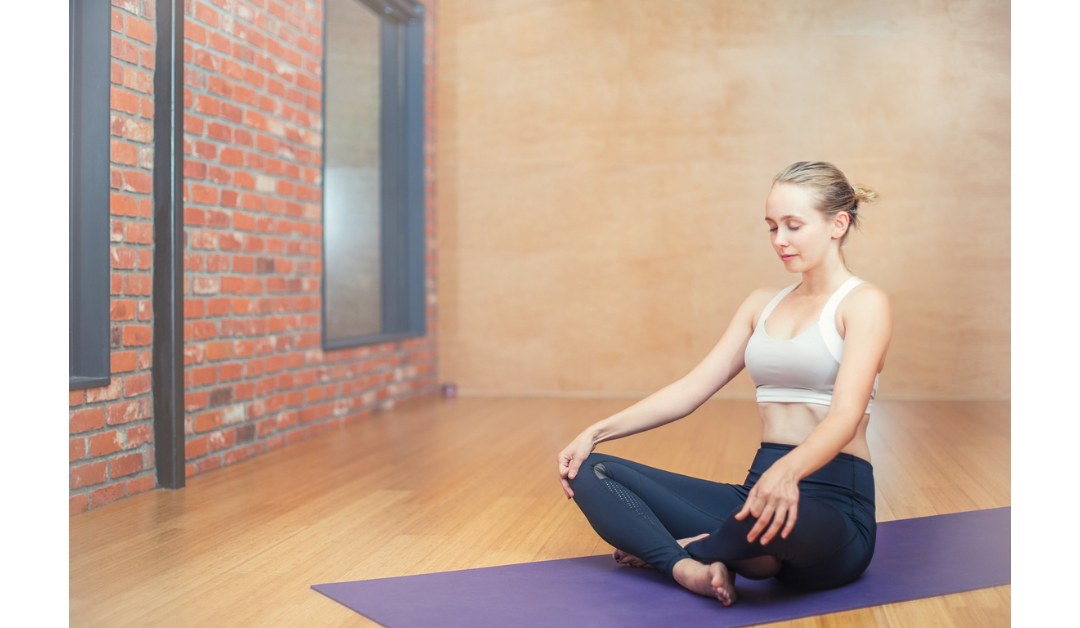
by Calien Trevino | Nov 15, 2024 | Anxiety, General, Trauma- and Stressor-Related Disorders
We’ve all heard it before: “Communication is key in relationships.” But what does that really mean? Is it just about talking more, or is there something deeper to it? Spoiler alert: It’s more than just having conversations. Effective communication is the backbone of every healthy relationship, from the early days of dating to those long-term, committed partnerships.
Let’s dive into why communication is so important for couples, how you can manage arguments in a healthy way, and why understanding your partner’s love language can make all the difference. Plus, we’ll explore why couples therapy is such a game-changer for improving communication and strengthening your relationship.
Why Communication Is Everything
So, why is communication so important? Well, think of it like this: Communication is the tool you use to connect with your partner, express your needs, and understand theirs. Without clear and open communication, misunderstandings pile up, feelings get hurt, and you start feeling like you’re talking to a brick wall instead of the person you love. Sound familiar?
When communication breaks down, it leads to a domino effect—small issues that could’ve been solved easily become big problems, and those unresolved issues can create distance between you and your partner. Open, honest, and empathetic communication helps you both stay on the same page, work through challenges together, and, most importantly, stay connected emotionally.
How Poor Communication Can Hurt Your Relationship
Let’s get real: a lack of communication can seriously hurt your relationship. When you stop sharing how you feel or aren’t listening to each other, it creates a disconnect. Maybe you feel unheard, unappreciated, or even resentful, which can lead to bigger issues like unresolved arguments or emotional distance.
If you’re always arguing but never resolving the core issue, it’s probably because there’s a breakdown in communication. You might be saying one thing, but your partner hears something else entirely. Or maybe one of you shuts down during conflict instead of talking it out. Either way, poor communication can leave both partners feeling frustrated, alone, and misunderstood.
Managing Arguments in a Healthy Way
Arguments are inevitable in any relationship, but it’s how you handle them that makes all the difference. A lot of couples make the mistake of letting arguments spiral out of control, turning small disagreements into full-blown fights. The key is to argue in a way that’s productive rather than destructive. Here’s how:
- Stay Calm: Take a deep breath before things escalate. Raising your voice or getting defensive only fuels the fire.
- Focus on the Issue, Not the Person: Avoid personal attacks. Stick to the topic at hand and focus on finding a solution rather than blaming your partner.
- Use “I” Statements: Instead of saying, “You always do this,” try “I feel upset when this happens.” It shifts the tone from accusatory to constructive.
- Take Breaks When Needed: If things are getting too heated, it’s okay to take a break. Step away, cool down, and come back to the conversation when you’re both ready to talk calmly.
- Listen to Understand, Not Just to Respond: It’s easy to focus on what you’re going to say next, but real communication happens when you actually listen to your partner and try to understand their point of view.
Healthy arguments are about finding solutions, not “winning.” The goal is to better understand each other and work through the issue together.
The Power of Love Languages
One of the most game-changing things in any relationship? Learning your partner’s love language. If you’re not familiar, the concept of love languages comes from Dr. Gary Chapman’s book The 5 Love Languages, which breaks down how people give and receive love in five different ways: Words of Affirmation, Acts of Service, Receiving Gifts, Quality Time, and Physical Touch.
Here’s the thing: You might be expressing love in the way you understand it, but if your partner’s love language is different, they might not feel fully loved or appreciated. For example, you might shower them with gifts (Receiving Gifts), but what they really need to feel loved is for you to spend uninterrupted time with them (Quality Time).
Understanding and communicating each other’s love languages is crucial for building a deeper emotional connection. Once you know how your partner feels most loved, you can show up for them in ways that truly matter, and vice versa. It’s a total game-changer for communication, intimacy, and overall relationship satisfaction.
Why Couples Therapy Is a Game-Changer
Now, let’s talk about couples therapy. Some people might think therapy is only for relationships on the rocks, but that couldn’t be further from the truth. Couples therapy is about strengthening your relationship and improving the way you communicate, even when things are going well.
Think of it like going to the gym—just like you work out to keep your body healthy, therapy helps keep your relationship in good shape. It provides a safe space to talk openly, understand each other’s perspectives, and learn new tools for communication and conflict resolution.
A therapist can help you uncover communication roadblocks, learn healthier ways to argue, and even help you better understand each other’s needs and love languages. If you’ve ever felt like you’re talking past each other or your arguments never seem to get resolved, therapy can offer a fresh perspective and help you break out of those negative patterns.
To get started in couples therapy, visit us at https://www.novatherapypllc.com!
Final Thoughts: Keep the Conversation Going
At the end of the day, communication is the glue that holds your relationship together. It’s how you express your love, work through challenges, and stay connected. Whether it’s managing arguments, understanding each other’s love languages, or even seeking out therapy to improve your communication, the effort you put into talking things out will pay off in the long run.
So, don’t wait until things are falling apart to start working on your communication. Make it a priority now, and watch your relationship grow stronger, more connected, and more fulfilling.

by Calien Trevino | Nov 8, 2024 | Anxiety, General, Trauma- and Stressor-Related Disorders
Remember the early days of your relationship? The butterflies, the spontaneous dates, and the constant effort to impress each other? Yeah, those were the good times. But here’s the thing — that magic doesn’t have to fade just because you’ve been together for a while. In fact, keeping the spark alive by continuing to date each other is one of the best things you can do for your relationship, especially when it comes to staying connected both emotionally and physically.
Let’s break it down: dating your partner, treating them with love and kindness, and making an effort in your relationship doesn’t just keep things fresh, it can totally elevate your sex life too. So, let’s talk about why you should keep dating your partner, how it impacts your connection, and how to reignite that romantic fire.
Why Continuing to Date Each Other Matters
Think of your relationship like a plant — if you don’t water it, it wilts. Relationships need the same kind of care and attention to stay strong. And one of the best ways to “water” your relationship? Keep dating each other! Seriously. It’s easy to fall into routines and let life’s demands take over, but making time for intentional dates helps you both feel valued and keeps that romantic vibe going strong.
When you continue to date each other, you’re not just going through the motions; you’re reminding each other, “Hey, you’re still the one I’m choosing every day.” Whether it’s a fancy dinner out, a cozy night in, or a spontaneous day trip, the point is to keep showing up for each other. And guess what? That regular investment in quality time together leads to a stronger emotional connection, which naturally makes everything else — yes, including your sex life — better.
How a Lack of Romance Affects Your Sex Life
So what happens when you stop dating each other? Let’s be real: when the romance starts to fade, it can affect every part of your relationship, especially your physical connection. When you’re not making time to connect emotionally, it’s easy to feel more like roommates than romantic partners.
Without regular emotional bonding, that closeness you once had can start to drift, and suddenly intimacy feels like a routine or an afterthought. Over time, that emotional disconnect can make your sex life feel stagnant, and the spark you once had? It fizzles out. This is why making time for romance is key — when you feel emotionally connected, you’re more likely to feel open, vulnerable, and ready to connect physically.
Why Not Feeling Loved Can Lead to a Non-Existent Sex Life
Let’s get real for a sec — not feeling loved or appreciated in a relationship can lead to a non-existent sex life. If there’s no emotional connection or affection, it becomes really hard to feel confident and secure enough to be intimate. When you don’t feel valued, sex can start to feel like a chore rather than a fulfilling way to bond with your partner.
It’s all connected. If you feel neglected or taken for granted, the last thing on your mind is going to be getting romantic. That’s why feeling loved and appreciated is so essential for maintaining a healthy sex life. When you know your partner values you, it’s easier to relax, let your guard down, and enjoy those intimate moments.
How Kindness and Love Impact Your Relationship
Kindness might sound basic, but it’s actually the foundation of every healthy relationship. Treating each other with kindness isn’t just about being nice — it’s about creating a safe and supportive space where you both feel valued and respected.
When you’re kind to each other, whether through words, actions, or small gestures, it strengthens your bond. And guess what? That bond is the foundation for everything else in your relationship, including your sex life. When you feel loved, appreciated, and supported, you’re more likely to be open and vulnerable with your partner, leading to a healthier, more connected sex life. Simple acts of kindness really go a long way.
Tips to Keep the Romance (and Sex Life) Alive
So, how do you keep the romance alive when life gets busy and routines take over? Here are some practical tips to keep things fresh, fun, and exciting in your relationship:
- Plan Regular Date Nights: Whether it’s once a week or once a month, make time for dedicated “us” time. Date nights don’t have to be fancy — just make sure you’re spending quality time together without distractions.
- Surprise Each Other: Little surprises go a long way. Whether it’s leaving a cute note, planning a surprise date, or bringing home their favorite snack, small gestures show your partner you’re still thinking about them.
- Flirt Like You’re Still Dating: Don’t let the flirting stop just because you’ve been together for a while. Compliments, playful teasing, and sweet texts keep the romantic vibes going.
- Create Rituals: Establish small, meaningful routines like a goodnight kiss, morning coffee together, or weekly walks. These little habits create a sense of closeness and connection.
- Try New Things Together: Break out of your routine by trying something new as a couple. Whether it’s a hobby, an activity, or a new place to explore, shared experiences help strengthen your bond.
- Make Time for Physical Affection: Even if you’re not in the mood for sex, small acts of physical touch like holding hands, cuddling, or a hug can help maintain emotional intimacy.
- Be Kind Daily: Simple acts of kindness and words of appreciation help maintain a positive and loving atmosphere. A little kindness goes a long way in keeping the love alive.
- Communicate Openly: Regularly check in with each other. Whether you’re talking about your day or sharing your feelings, open communication is key to staying connected emotionally and physically.
So there you have it — the key to keeping your relationship strong, your romance alive, and your sex life thriving is all about continuing to date each other, showing kindness, and making that emotional connection a priority. Relationships take effort, but the reward? A love that keeps growing and evolving, even as life changes around you.
Go ahead and plan that next date night — your relationship (and your sex life) will thank you for it!

by Calien Trevino | Oct 18, 2024 | Anxiety, General, Trauma- and Stressor-Related Disorders
Hey there, glow-getters! 🌟 Let’s talk about something that’s seriously transformational: self-love. In a world that often pushes us to seek validation from others, embracing self-love is like finding your personal superpower. It’s not just about pampering yourself (although, yes, facials and bubble baths are amazing); it’s about creating a positive relationship with yourself that boosts your overall well-being.
In this blog, we’re diving into why self-love is so crucial, how to practice it, and what happens when we don’t. Plus, we’ll share some awesome activities to help you get started on your self-love journey. Ready to glow up? Let’s get into it!
Why Self-Love is Essential
First things first—why is self-love so important? When you practice self-love, you’re essentially giving yourself permission to be your own biggest cheerleader. It’s about recognizing your worth, treating yourself with kindness, and making choices that nurture your well-being.
When you love yourself, you’re more resilient to life’s ups and downs. You’re better equipped to handle stress, make healthier choices, and bounce back from setbacks. Self-love also sets the tone for how others treat you. When you value yourself, you naturally attract people who respect and appreciate you. It’s like a magnetic force that draws in positivity and support.
The Impact of Not Practicing Self-Love
So, what happens when self-love is in short supply? When you don’t practice self-love, you’re more likely to fall into negative self-talk, self-doubt, and unhealthy habits. You might find yourself constantly seeking validation from others, feeling unworthy, or struggling with low self-esteem.
Lack of self-love can also lead to a cycle of self-sabotage. If you don’t value yourself, you might not take care of your physical or mental health, leading to burnout, anxiety, and a general sense of dissatisfaction. This cycle can be tough to break, but recognizing its impact is the first step toward change.
Self-Love Activities to Try
Ready to start your self-love journey? Here are some activities that can help you build a stronger relationship with yourself and boost your overall happiness:
- Practice Daily Affirmations: Start your day with positive affirmations. Say things like, “I am enough,” or “I am worthy of love and respect.” Repeating these affirmations can help shift your mindset and build self-confidence.
- Journaling: Take a few minutes each day to write down your thoughts and feelings. Reflect on your achievements, express gratitude, and set personal goals. Journaling helps you connect with yourself and track your progress.
- Self-Care Routines: Pamper yourself with regular self-care. Whether it’s a relaxing bath, a skincare routine, or simply taking time to unwind, make self-care a priority. It’s a way to show yourself that you’re worth the effort.
- Set Boundaries: Learn to say no to things that drain your energy or don’t align with your values. Setting boundaries is an act of self-respect and helps you maintain balance in your life.
- Engage in Hobbies: Spend time doing things you love and that bring you joy. Whether it’s painting, hiking, or reading, engaging in hobbies helps you stay connected with your passions and interests.
- Surround Yourself with Positivity: Surround yourself with people who uplift and support you. Positive relationships reinforce your self-worth and create a nurturing environment for personal growth.
- Mindfulness and Meditation: Practice mindfulness and meditation to stay present and reduce stress. These practices help you connect with yourself on a deeper level and promote inner peace.
- Celebrate Small Wins: Acknowledge and celebrate your achievements, no matter how small. Recognizing your successes boosts your self-esteem and encourages a positive self-image.
How Self-Love Affects Your Relationships
When you love and value yourself, it has a ripple effect on your relationships. Self-love creates a solid foundation of self-respect and confidence, which translates into healthier, more fulfilling connections with others.
When you’re in a good place with yourself, you’re less likely to seek validation from your partner or friends. Instead, you’re more likely to give and receive love from a place of abundance, not need. This balance fosters stronger, more supportive relationships where both partners feel valued and respected.
Final Thoughts: Embrace Your Inner Glow
Self-love isn’t just a buzzword—it’s a transformative practice that can enhance every aspect of your life. By practicing self-love, you’re not only improving your own well-being but also creating a positive environment for your relationships and personal growth.
So go ahead, start incorporating these self-love activities into your routine and watch as you begin to glow from the inside out. You deserve to be your own biggest fan and to treat yourself with the love and respect you offer to others.
Remember, self-love is a journey, not a destination. Embrace it, nurture it, and let it guide you toward a happier, more fulfilled life.

by Calien Trevino | Oct 4, 2024 | Anxiety, General, Trauma- and Stressor-Related Disorders
Hey there, friend! If you’ve ever felt like your days are chaotic or you can’t seem to get a handle on your stress, listen up. I’m about to share a little life hack with you that can totally transform your mental and physical well-being—yep, I’m talking about morning and night routines!
Now, before you roll your eyes and think, “ugh, routines sound so boring,” I promise this isn’t about some strict, type-A schedule. This is all about creating small habits that set you up for success and help you feel more in control of your life. We all need a little structure in this crazy world, right? So, let’s dive in!
Why Routines Matter
Think of your morning and night routines as the bookends of your day—the things that hold everything else together. They’re like a little gift to yourself that says, “Hey, you matter!” When you start and end your day with intention, it sets a positive tone for everything that happens in between.
Plus, routines are great for both your mind and body. They help reduce stress, improve focus, and even support better sleep and energy levels. It’s like pressing the reset button on your day. Who doesn’t need that?!
Creating a Morning Routine You Actually Enjoy
Alright, let’s talk mornings. If you’re not naturally a morning person, that’s cool—you don’t have to become one. But creating a routine that eases you into the day can make a huge difference.
1. Ditch the Snooze Button
I know, I know. That extra 10 minutes in bed is SO tempting. But trust me, hitting snooze over and over just messes with your body’s natural rhythm. Try waking up at the same time every day—your future self will thank you for it.
2. Hydrate Before Coffee
Before you reach for that beloved cup of caffeine (no shade to coffee lovers), drink a big ol’ glass of water. You’ve been asleep for hours, and your body needs hydration. Plus, it’s a small act of self-care that can set the tone for a healthier day.
3. Move Your Body
No, I’m not saying you need to hit the gym at 6 AM. But a little morning movement can do wonders for your energy and mood. Whether it’s some light stretching, a quick yoga flow, or even just dancing around your room to your favorite playlist, get those endorphins flowing!
4. Take a Mindful Moment
Before diving headfirst into your to-do list, take a few minutes to clear your mind. This could be journaling, meditating, or just sitting in silence. Think of it as a mental reset that helps you start the day with focus and calm vibes.
Unwinding with a Night Routine
Now, let’s fast-forward to the end of the day. Your night routine is just as important as your morning routine because it sets you up for restful sleep—and we all know how much better life is with good sleep, right?
1. Turn Off Those Screens
About an hour before bed, start disconnecting from your phone, TV, laptop—basically anything with a screen. I get it, scrolling Instagram or watching Netflix is so tempting, but the blue light can mess with your sleep. Try reading a book or listening to some chill music instead.
2. Reflect & Release
Before you hit the sheets, take a few minutes to reflect on your day. What went well? What stressed you out? A quick journaling session or mental check-in helps you process everything so you’re not carrying the day’s baggage into your sleep. Let it go, Elsa style.
3. Make Your Bed a Sleep Sanctuary
Your bedroom should be your happy place—cozy, calm, and inviting. Invest in comfy sheets, lower the temperature, and keep the lights low. Bonus points if you use calming scents like lavender or chamomile. Your bed should be a place you want to crawl into.
4. Stick to a Sleep Schedule
Just like waking up, going to bed at the same time every night helps regulate your body’s internal clock. The more consistent you are, the easier it’ll be to fall asleep and stay asleep.
Final Thoughts
There you have it—your guide to building healthy morning and night routines that’ll help you feel on top of your mental and physical game. The key here? Start small. You don’t need to overhaul your entire life overnight. Try adding just one or two of these tips into your day and see how you feel.
Remember, routines aren’t about being perfect. They’re about showing up for yourself in little ways, every single day. You deserve that, right?
Got any morning or night routine tips of your own? Share them with me in the comments—I’d love to hear what’s working for you!
Until next time, keep showing yourself that love and care. 💖

by Calien Trevino | Sep 27, 2024 | Anxiety, General, Trauma- and Stressor-Related Disorders
Let’s face it—we’re all stressed. Whether it’s work, relationships, or that endless social media scroll, the pressure is real. If you’ve ever found yourself tight in the shoulders, clenching your jaw, or feeling on edge for no reason, it might be time to try a simple, game-changing technique: Progressive Muscle Relaxation, or PMR.
But what’s PMR, you ask? It’s a guided technique where you tense up a muscle group, hold for a few seconds, then let it go completely. It’s like hitting the refresh button for your body and mind, one muscle at a time. Here’s why you should make PMR your new go-to chill-out routine:
1. Bye-Bye Stress, Hello Calm
When life’s got you in a chokehold, PMR helps you fight back. The process of tensing and relaxing muscles teaches your body the difference between being wound up and truly relaxed. So, when stress creeps in (and it will), PMR trains your body to release that tension quicker and easier.
2. Better Sleep Vibes
Ever find yourself lying awake, replaying the day’s drama over and over? PMR is like a reset button for your nervous system, helping you wind down and release the physical tension that keeps you tossing and turning. Incorporating it into your nighttime routine could lead to deeper, more restful sleep—goodbye late-night TikTok rabbit holes!
3. It’s Anxiety’s Worst Nightmare
If anxiety has been crashing your vibe, PMR can help ease those racing thoughts. When you’re in the middle of an anxious moment, it’s common to feel physically tight or jittery. By practicing PMR, you give your body a tool to slow down, letting you feel more in control of your physical and mental state.
4. Self-Care You Can Do Anywhere
The best part about PMR? You can do it literally anywhere. Stuck in traffic? PMR. Awkward Zoom meeting? PMR. Waiting for your coffee order? You guessed it—PMR! You don’t need special equipment or even a ton of time. Just a few minutes of focused muscle tensing and relaxing can make a huge difference in how you feel.
5. Strengthens Your Mind-Body Connection
One of the underrated perks of PMR is how it forces you to tune into your body. In a world where we’re often running on autopilot, it helps you reconnect with what your body’s feeling, making it easier to notice and address tension before it becomes a bigger issue. Think of it as a mental check-in, but for your muscles!
6. Improves Your Relationships
Feeling less stressed and more in tune with your body isn’t just good for you—it’s good for your relationships too. When you’re calmer, it’s easier to communicate, listen, and be present with your friends, family, or partner. And let’s be real: when you’re not carrying the weight of the world in your shoulders, it’s a lot easier to be kind and patient with others (and yourself).
How to Get Started with PMR
If you’re ready to give PMR a shot, here’s a super simple routine to try:
- Find a comfy spot. Sit or lie down somewhere you won’t be disturbed for a few minutes.
- Start with your toes. Tense the muscles in your toes for 5-10 seconds, then release. Really feel the difference between the tension and the relaxation.
- Work your way up. Move to your legs, stomach, arms, and all the way up to your face, tensing and relaxing each muscle group.
- Breathe deeply. Throughout the process, take slow, deep breaths to maximize the relaxation vibes.
- Repeat as needed. Do this once a day or whenever you need a quick reset!
Check out our podcast episode where we guide you through the PMR here: https://podcasters.spotify.com/pod/show/novatherapytx/episodes/Progressive-Muscle-Relaxation-e2mvmiq
PMR is a simple, no-cost way to chill out and show your body some love. So, next time stress strikes, take a minute, tense it up, and let it all go. Your muscles—and your mind—will thank you.
















